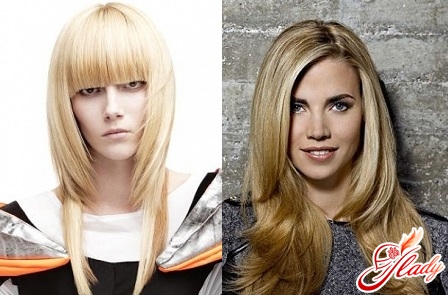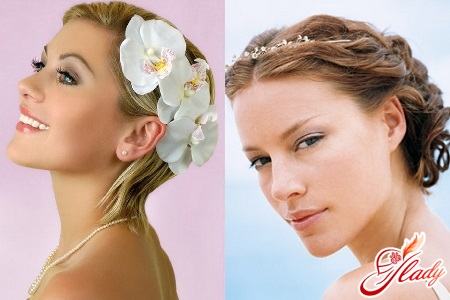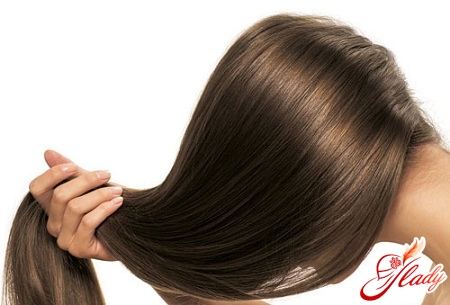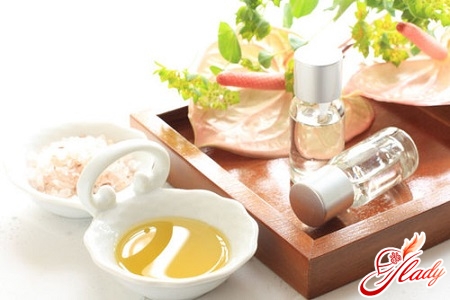
Every person loses from 40 to 100 dailyhair. On average, each hair lives from 3 to 7 years, with 90% of them growing actively, and the remaining 10% have a slow growth process. If such hairs are dormant for more than six months, they begin to actively fall out. As a rule, with age, the structure of the follicle becomes weaker - this is what provokes severe hair fragility, dryness, increased hair loss and even baldness. A good shampoo for hair loss can help solve the problem, but initially you need to understand why exactly the hair loss occurs.
Possible causes of hair loss
Skin damage may be to blame.head or constant stress. Taking certain medications also affects the condition of the hair. Other reasons that provoke the development of the problem may be:
- aging;
- problems with the hormonal background (for example, after childbirth);
- disorders of the nervous system;
- heredity;
- permanent staining, perm or frequent drying with a hair dryer;
- suffered head trauma;
- fungal, bacterial infections;
- some autoimmune diseases;
- unbalanced nutrition;
- wrong hair, curling locks.
If you notice that you have started to activelyIf your hair is falling out, then first of all you should visit a doctor who will help to determine why exactly this is happening. You may have to take some tests to assess your health. If the main problem lies in serious disorders in the body, then even the most effective cosmetics will not help you. Some external factors can also cause hair loss, for example, the scorching sun in summer, and in winter - dry air and cold wind. At such times, you need to additionally protect your hair with special oils, sprays and serums and, of course, fill your diet with healthy foods as much as possible. It is also important what kind of shampoo you use. The modern market offers a huge range of products aimed at strengthening hair. But not everyone knows how to choose such products correctly, and rely only on colorful advertising appeals. Let's figure out what you should pay attention to when buying strengthening shampoos.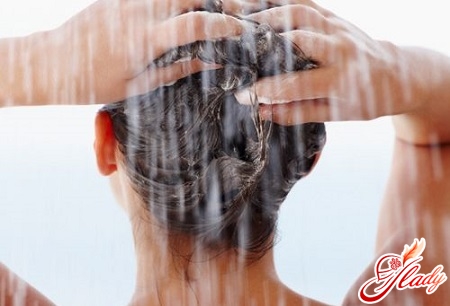
Tips for choosing a shampoo
Almost all women, when choosing shampoo,pay attention to the pleasant smell and beautiful packaging; but these indicators do not affect the quality of the product. Many manufacturers add exotic ingredients to the composition of care products, but they cannot guarantee a good result. The thickness of the shampoo, its color - all this also does not play any role. As a rule, a pleasant smell, color and consistency - these are qualities that only increase the attractiveness of the shampoo. You should not judge the effectiveness of the product by them. It is generally accepted that a good shampoo is one that gives a lot of foam. In commercials, you can often see huge caps of foam on the heads of models - this is nothing more than a simple overspend of cosmetics, which allows you to get this effect. Depending on the composition, the shampoo may foam more or less, but this is in no way connected with its quality. The primary task of shampoo is to cleanse the scalp and wash the hair. Therefore, the main component that is part of such cosmetics - This is a detergent with a good cleaning effect. Such an ingredient is also called a surfactant (abbreviated - SAS). On the label, where the composition is listed, it is usually indicated at the very beginning. SAS include components that envelop excess fat and dirt on the strands, after which they are washed off with water. When combined with water and air, detergents cause the appearance of thick foam. The effectiveness of the shampoo depends on how high-quality and in what quantity the SAS are included in the composition. For example, in products for oily hair, the concentration of SAS is much higher than in those intended for dry hair. In addition, shampoos also contain synthetic detergents - they are called surfactants. Today, the following synthetic detergents are most often used:
- ammonium lauryl sulfate;
- ammonium laureth sulfate;
- sodium lauryl sulfate;
- sodium laureth sulfate;
- TEA lauryl sulfate;
- TEA laureth sulfate.
In the vast majority of modernproducts use only the first two types of surfactants. They are very cheap, have excellent cleaning properties, and are quickly washed out of hair. Their main drawback is rigidity. Dermatologists do not recommend using products that contain such components. Of course, this is profitable for the manufacturer, but the scalp can be seriously damaged by such shampoos. Hair breaks, dries, and the epidermis becomes inflamed - this provokes even more hair loss. Those manufacturers who do not skimp on their products use the last three surfactants. Such shampoos can be used even by those whose hair is very damaged and dried out. This also applies to additives that improve consumer qualities and properties of the product - dyes, flavors, pearlescent fillers and viscosity regulators. Respectable manufacturers, along with preservatives, will add a vitamin complex, special infusions, extracts and extracts to their products - All this will help to minimize the harm caused by preservatives. Vitamins A and B and PP are the most useful for hair. They accelerate hair growth, strengthen and restore the structure. When choosing a shampoo, pay attention to whether it contains vegetable oils - the more, the better. Castor, burdock (burdock) oil, avocado, coconut and jojoba extracts - this is what helps hair look great. Such natural components envelop each hair, as if locking water in them. This prevents drying and brittleness of curls. Accordingly, their growth is also normalized. Therefore, when buying shampoo, be sure to pay attention to its label, where the composition is indicated. Assess how many chemical ingredients, plant extracts and vitamins it contains. This is what determines how effective a particular product will be for your hair. If the shampoo contains nothing but preservatives, then there is no need to purchase such a product.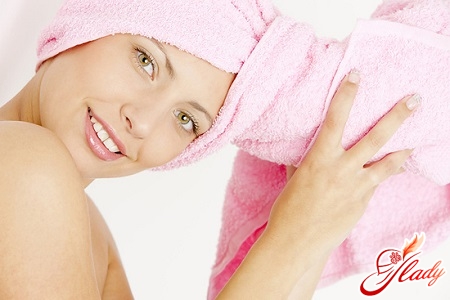
Shampoos for home use
You can make strengthening shampoos at home— for this you will need simple products that are always at hand. For example, you can make an egg shampoo. Just take a few egg yolks - they just need to be rubbed into wet hair. For greater effect, leave the mixture on the curls for five minutes, and then rinse. Nettle homemade shampoo also perfectly restores hair. Take 100 g of fresh nettle (you can also use dry) and pour cold water - one liter is enough. Add half a liter of vinegar here. Mix. Boil the resulting mass for about 30 minutes, then strain. Add a couple of glasses of the mixture to a container with water and wash your hair with the resulting composition. Rye bread also strengthens the hair structure; it needs to be rubbed with water until a homogeneous mass is formed. Rub the resulting shampoo into your hair, then rinse it thoroughly with warm water. You can also use another great recipe - based on herbs. Prepare calendula flowers, birch leaves, burdock root and hop cones, mix. Pour 50 g of the resulting mass with hot beer, let it brew for a few minutes, and then feel free to wash your hair. If your scalp quickly becomes oily, it is recommended to make homemade birch shampoo, for which you need to pour hot water over birch buds and wait 20 minutes for the mixture to brew. Use for a month. Or try using the original recipe - pomegranate shampoo. To prepare it, 100 g of pomegranate peel should be boiled for 15 minutes in a liter of water. And finally, one of the most effective shampoos is kefir. Instead of kefir, you can use yogurt or plain sour milk. You need to generously grease your hair and wrap it in polyethylene, over which wrap a warm towel. After 30 minutes, rinse your hair thoroughly with warm water, then rinse your locks with a vinegar solution or diluted lemon juice to achieve a rich shine.
Folk remedies for hair rinsing
The healing one copes well with hair lossa decoction of stinging nettle combined with coltsfoot, which is used to rinse the head. To do this, pour three tablespoons of each herb with a liter of boiling water and leave for an hour. Then strain. Before rinsing your hair, you need to wash it with tar soap or yolk. A decoction made from nettle leaves copes well with hair loss. This recipe is suitable for increased sebum secretion and dandruff (in combination with hair loss). Rub the tincture of nettle leaves (about 1 large spoon) into the scalp once a week. To prepare the tincture, pour boiling water over the leaves and let it brew for an hour and a half. Do not despair if your hair has started to fall out. A properly selected shampoo for hair loss, good rinses, proper care, a balanced diet, no stress and good sleep - These are the components on which the beauty and health of hair depend. And healthy hair is the most luxurious adornment of any woman!




